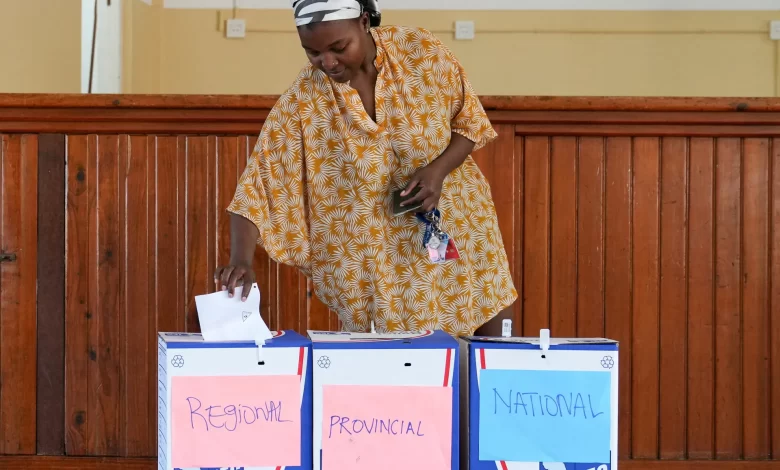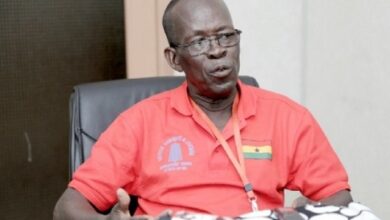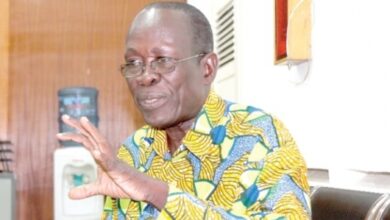
South Africans in the rural areas of the eastern KwaZulu-Natal province must cross hilly terrain with little infrastructure to reach nearest polling stations in what is shaping up to be a pivotal general election for the country.
At stake is the three-decade dominance of the African National Congress party, which led South Africa out of apartheid’s brutal white minority rule in 1994. It is now the target of a new generation of discontent in a country of 62 million people — half of whom are estimated to be living in poverty.
Thembekile Ngema, 72, who treaded a 20 minute dirt path to reach her nearest polling station, tells the Associated Press about the frustrations with the economic hardships facing the country’s youth.
“Our children are well into their 30s and they don’t have opportunities for employment. This is heartbreaking for us as elderly parents because they are meant to be looking after us at this age. I can’t enjoy my government grant money because I have to use it to look after my children,” she said as she sat outside a polling station at a school in Umlalazi, a semi rural area near one of KwaZulu Natal’s oldest towns, Eshowe.
Africa’s most advanced economy has some of the world’s deepest socioeconomic problems, including one of the worst unemployment rates at 32%.
The lingering inequality, with poverty and joblessness disproportionately affecting the Black majority, threatens to unseat the party that promised to end it by bringing down apartheid under the slogan of a better life for all.
After winning six successive national elections, several polls have the ANC’s support at less than 50% ahead of this one, an unprecedented drop. It might lose its majority in Parliament for the first time, although it’s widely expected to hold the most seats.
The ANC won 57.5% of the vote in the last national election in 2019, its worst result to date and down from a high of nearly 70% of the vote 20 years ago.




